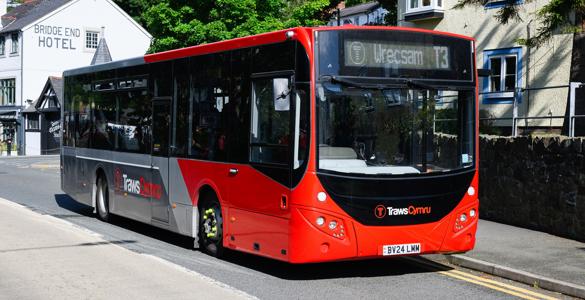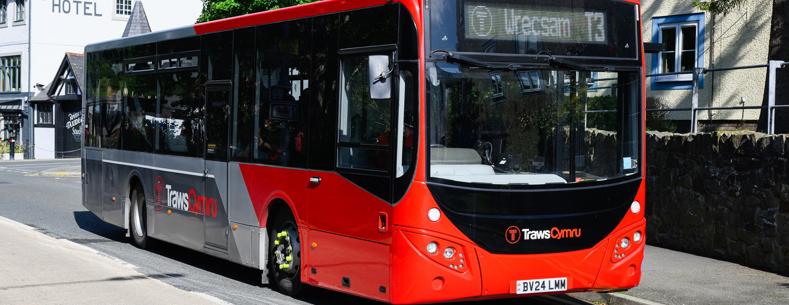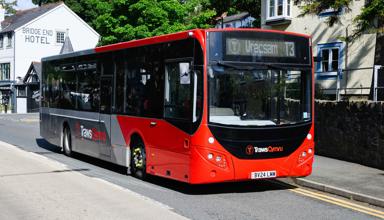On 31 March 2025 the Cabinet Secretary for Transport and North Wales, Ken Skates MS, introduced the Bus Services (Wales) Bill to the Senedd. The Explanatory Memorandum (EM) explains that the Bill:
…establishes a new legislative framework to support the delivery of local bus services as part of a wider “one network, one timetable, one ticket” reform of public transport in Wales.
The Bill will re-regulate the sector. The EM says “the intention is that franchising will be the principal mechanism for delivering services”.
Franchising can take different forms. But in general public authorities award exclusive contracts to bus operators which bid to deliver services in return for a fee.
The Senedd will vote on the general principles of the Bill on 16 September. Reports have been published by the Climate Change, Environment and Infrastructure (CCEI) , Finance and Legislation, Justice and Constitution (LJC) Committees.
Why is the Bill needed?
Bus services in Great Britain, outside London, have been deregulated since 1986. Operators plan most bus services, tickets and fares themselves. Local authorities have a statutory duty to secure an effective network but limited powers to do so.
The condition of Welsh bus services has been raised as a concern by passengers and bus industry representatives. In 2023 we published an article highlighting that bus passenger journeys have been declining in Great Britain (outside London) for two decades. Wales has seen a long-term reduction in the distance travelled by local buses while operating costs have overtaken revenues.
Long-term causes of this decline include increasing operating costs, and changes in demand driven by factors like online shopping, car ownership, rising fares and the impact of congestion / falling bus speeds on the economics of bus operations. COVID-19 also affected bus services in Wales more than the rest of Great Britain, and recovery has been slower.
What does the Bill do?
The Bill aims to deliver the Welsh Government’s priorities set out in its 2022 White Paper. The EM says it is “part of a wider “one network, one timetable, one ticket” reform of public transport in Wales”. It has three key objectives:
- Introduction of Wales-wide franchising, with the Welsh Ministers as the ‘franchising authority’, developing a Welsh Bus Network Plan detailing routes, and contracting with operators. In practice, Transport for Wales (TfW) will manage the process and Corporate Joint Committees of local authorities will help plan the network.
- Removal of statutory restrictions on local authorities establishing ‘municipal’ bus companies, potentially meaning more council owned bus companies like Cardiff Bus and Newport Bus.
- Establishment of new data sharing provisions requiring operators to make data available to the Welsh Ministers and to the public.
The Bill refers to ‘local bus service contracts’, rather than ‘franchises’. As this recent paper we commissioned from Leeds University indicates, bus service contracts can take various forms. However, the Welsh Government has said it intends to implement a gross cost model with incentives – meaning the Welsh Ministers will receive fare revenue, paying operators a fee with incentives to encourage performance.
The Welsh Government believes franchising will provide greater stability, better fares and integration with other modes, and allow cross-subsidy of services, with more profitable routes and regions supporting less profitable ones.
While franchising will be the main delivery mechanism, the Bill includes arrangements for services to operate under permits. These could either be at the instigation of the Welsh Ministers to meet their duties, or by operators themselves. For example, these could be used for the Welsh leg of an English cross-border service or to try a new innovative service.
The Bill also makes provision for the Welsh Ministers to directly operate services (in practice via TfW). This is intended to apply as an ‘Operator of Last Resort’ option should a franchise contract fail.
What did Senedd committees find?
The CCEI Committee recognised the need for the Bill, and recommended that the Senedd support its general principles. However, it raised a number of issues.
It said it shared stakeholder concerns that the Bill lacks detail, with no provision for statutory guidance. Stakeholders highlighted many areas they were unclear about, and where they felt guidance was needed.
The Senedd’s LJC Committee, while making comments on specific powers, said it was “content with the balance between what is on the face of the Bill and what is left to subordinate legislation.”
The CCEI Committee raised concerns about affordability of franchising, and noted the need for “significant organisational capacity in TfW” to deliver the new approach. The Committee visited Manchester, the first location in Great Britain to move from deregulation to franchising. It heard how expensive, complex and challenging a process delivering Manchester’s Bee Network has been – and particularly the difficulty in engaging SME bus operators which are so prevalent in Wales and critical to public and school bus services.
In its report, the Finance Committee said it was “broadly content” with the financial implications of the Bill set out in the Regulatory Impact Assessment. However, it also noted challenges in long range forecasting as well as implications for SMEs, and called for greater clarity in certain areas such as the cost of TfW’s “aspirational network”.
The CCEI Committee highlighted stakeholder concerns about the future role of local authorities. Local government evidence argued for a more central role for councils, which are key funders of bus services, have local knowledge and will also have a continuing role in managing highways and local bus infrastructure.
The Cabinet Secretary said he believes franchising will allow greater control of funding, ensuring it’s more efficiently used. He stressed that in practice, “local authorities will have a far greater role than … many people thus far have appreciated.”
Learner travel was another widely held area of concern. For example, the Children’s Commissioner noted that in 2023 a Welsh Government report had said franchising would allow schools and colleges to be taken into account in planning the network. Yet this was not clear in the Bill.
The Cabinet Secretary said learner travel is “out of scope of the Bill”, remaining a local authority responsibility. However, he stressed that TfW could “consider whether there are any opportunities whatsoever to work alongside learner travel provision.”
The CCEI Committee made 39 recommendations in total in a range of areas. These included:
- proposing a Passenger Charter;
- that a policy statement should set out how leaner travel will be considered in franchising;
- formalising the role of CJCs and local authorities in developing the Bus Network Plan;
- steps to help SMEs engage with franchising;
- how cross-subsidy will operate;
- details of how permitting and direct provision will operate; and
- identifying areas where guidance would be welcome.
What’s next?
TfW and the Welsh Government have published Our Roadmap to Franchising detailing what’s planned and how it will be implemented.
If the Bill is agreed by the Senedd, bus franchising is expected to roll out in four regional ‘franchise areas’ between 2027 and 2030. The Committee heard from TfW about the extensive work which is already underway, but the task ahead is huge.
The Senedd will want to satisfy itself both in the stage 1 debate, and through subsequent stages, that this Bill provides the framework on which to build an ambitious network.
Senedd Research has published a range of materials on bus services, franchising and the Bill which are available on our Bus Services (Wales) Bill: resources page.
The Welsh Government’s response to the Climate Change, Environment and Infrastructure Committee, Finance Committee and Legislation, Justice and Constitution Committee reports have now been laid.
Article by Andrew Minnis, Senedd Research, Welsh Parliament






